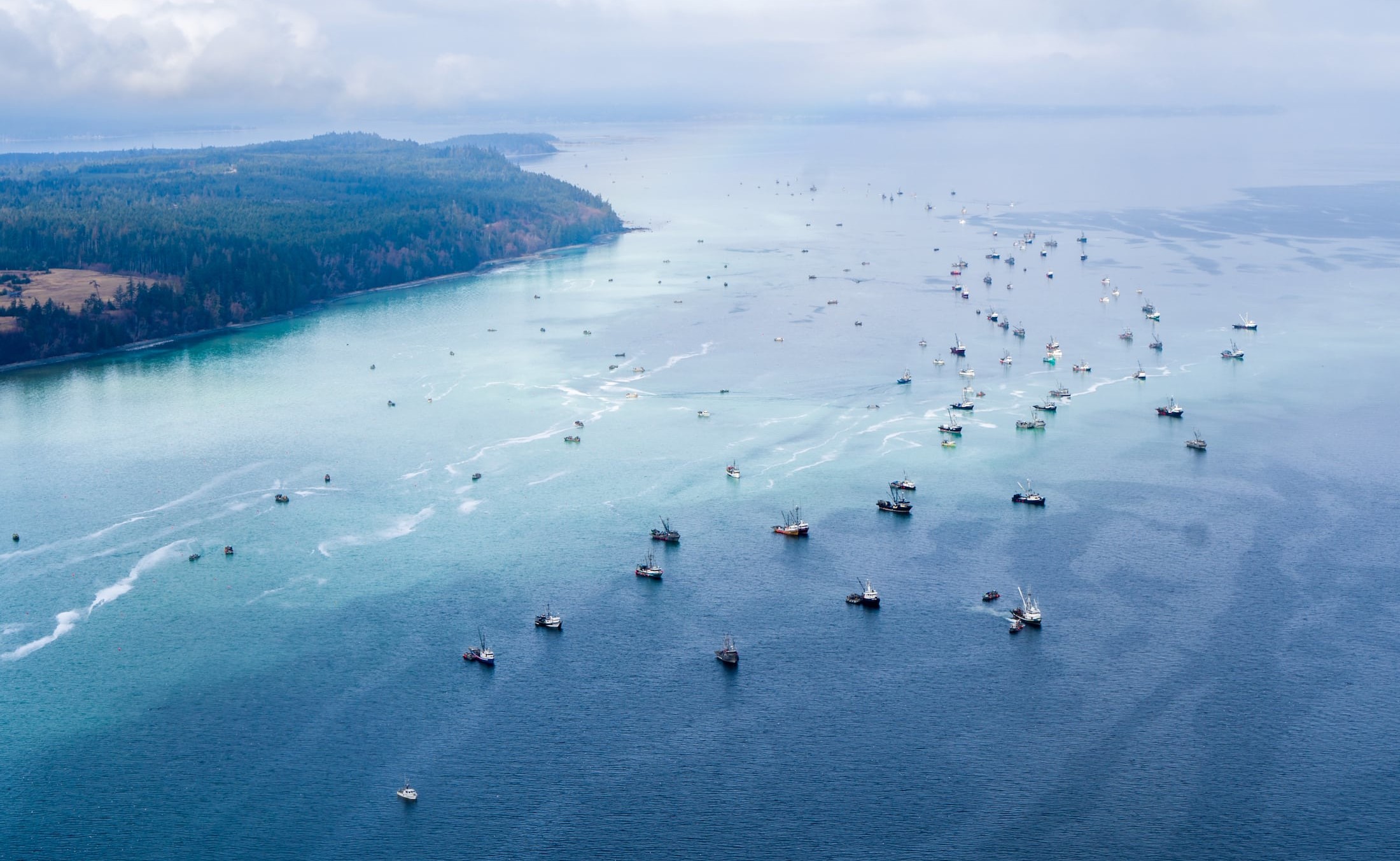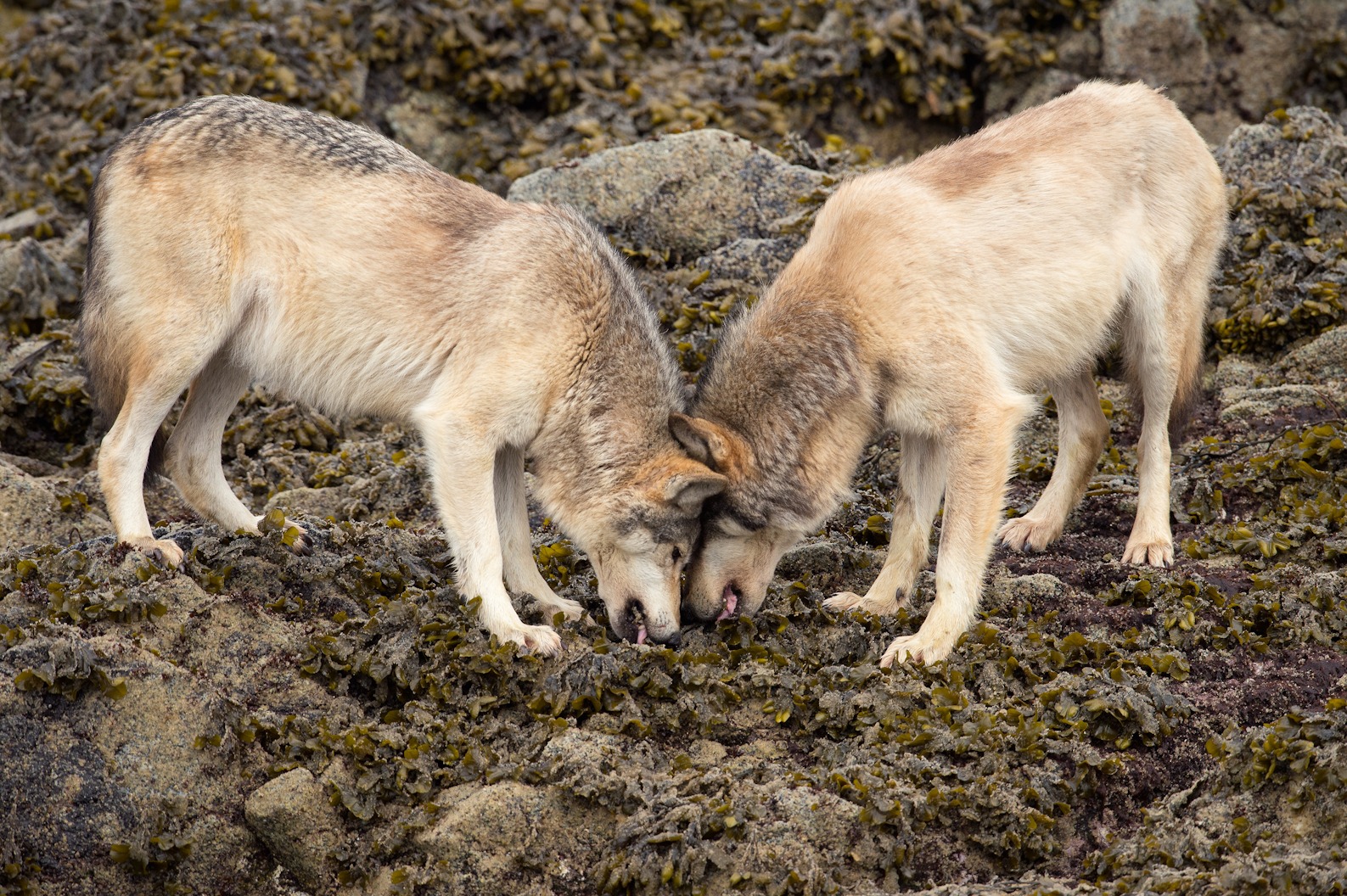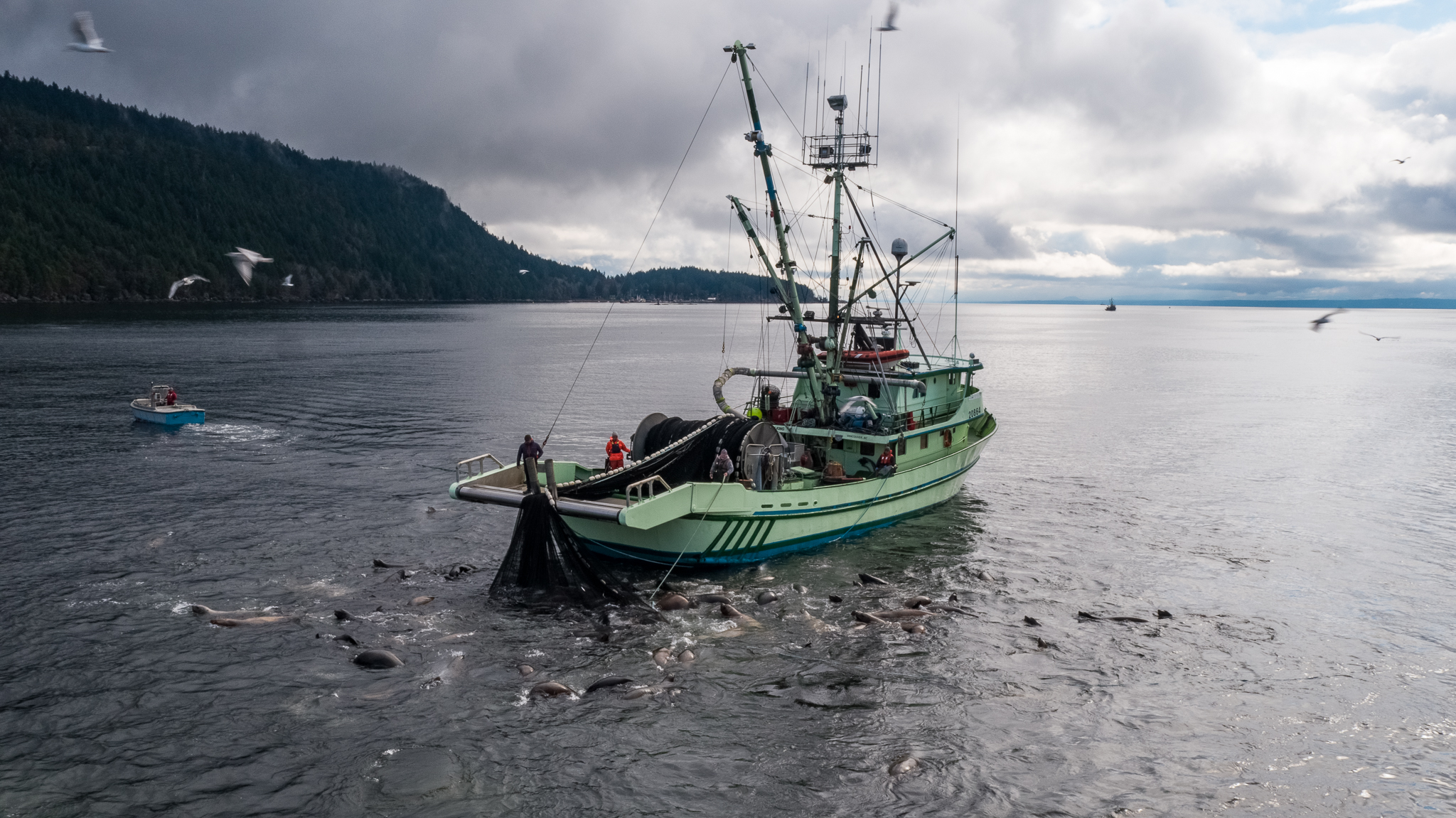
Hope for a huge, ancient and imperilled fish
First Nations are leading efforts to make sure lake sturgeon can find a home in...
Conservation groups are calling for the immediate closure of the herring fishery in the Strait of Georgia following the release of new federal government data showing a four-year population biomass decline of almost 60 per cent.
“We’ve been systematically overfishing these stocks and the Gulf of Georgia fishery is the last one left,” Pacific Wild co-founder Ian McAllister told The Narwhal.
“Now we’re finding out that it’s already in a state of collapse.”
Herring once spawned en masse in bays and inlets along the B.C. coast, turning waters chalky with eggs and milt in one of nature’s spectacular events.
Today, largely due to overfishing, the only remaining area of spawn is between Qualicum Beach and Comox.
“The entire B.C. fishing fleet is now directing all of its efforts on this one population in the Strait of Georgia,” said McAllister, whose organization has been sounding the alarm bell about herring decline for years.
Herring are a primary food source for endangered Chinook salmon, which in turn comprise 80 per cent of the diet of highly endangered southern resident killer whales.
“What we can’t understand is why they [the federal government] are spending hundreds of millions of dollars in recovery efforts for both salmon and whales while they’re liquidating their main food supply,” McAllister said.
The Department of Fisheries and Oceans (DFO) data revealed the herring population biomass in the Strait of Georgia dwindled from about 130,000 metric tonnes in 2016 to about 86,000 metric tonnes in 2019. DFO predicts the population biomass will drop to just 54,200 tonnes in 2020.
The new data also discloses that the returning herring population will consist of smaller and younger fish with lower reproductive capacity.

Herring fishing boats in the Strait of Georgia. Photo: Pacific Wild
Last year’s herring quota was about 21,000 tonnes, noted McAllister.
“People don’t really understand how much fish is taken out,” he said. “That’s the equivalent in weight of the largest class of B.C. ferry, full of fuel, oil and cars. That’s how much fish is taken out of the Strait of Georgia in just a one-week period.”
The seine and gill net fishery, which begins at the end of February or early March, usually lasts one week to 10 days.
Herring, a silvery fish that typically grow to just over 30 centimetres in length, spawn repeatedly — unlike salmon, which spawn only once.
“That’s one of the reasons why the fishery is so unsustainable,” McAllister noted.
“They’re killing the fish and extracting the roe [for sushi] and the rest of it is going to feed farmed salmon, feed lots and garden fertilizer. But the fish never gets to spawn again. It’s hugely unsustainable in that regard.”

Herring during the 2018 spawning season in British Columbia. Photo: Pacific Wild
McAllister said the new data contrasts sharply with federal Fisheries Minister Jonathan Wilkinson’s assurance earlier this year in the House of Commons that decisions about the commercial herring fishery are based on the “abundance of the stock that exists there” and grounded in science.
“And then we find out months later that they’ve had to reassess their estimates dramatically and we find out that, even when they didn’t reach their entire quota, they still over-fished the stock.”
Pacific Wild, along with Conservancy Hornby Island, the Association for Denman Island Marine Stewards and the Sea Shepherd Conservation Society, is also asking the federal government to create a Pacific herring recovery program for the Strait of Georgia.
“If we allow them to rebuild, it would have a profound impact on the recovery efforts of wild salmon groundfish, bottom fish, whales, dolphins, so many species that are literally starving right now,” McAllister said.
Grant Scott, chair of Conservancy Hornby Island, said if the herring fishery isn’t closed it “could be a disaster for other species,” whose numbers are already greatly reduced from historic populations.
“This is the time to shut this thing down,” Scott told The Narwhal. “Let it recover.”
“All the other creatures that live around the whole Gulf of Georgia, the seabirds, the salmon, the cod, the halibut, the humpback whales, everybody out there in the whole ecosystem relies one way or another on herring.”

Wolves on the B.C. coast feed on herring roe. Photo: Pacific Wild

Female herring can lay up to 10,000 eggs, each the size of a grain of sand. Photo: Pacific Wild
According to the four conservation groups, the herring population in the Strait of Georgia has suffered from years of excessive quotas based on biomass calculated using a post-industrial fishing baseline.
The 2019 quota was set based on a predicted return of 122,000 tonnes, but the groups say they were told by DFO that fewer than 86,000 tonnes returned.
“Fisheries ended up catching 25 per cent of the population — exceeding the 20 per cent harvest quota once again,” the groups said in a joint press release.
According to McAllister, B.C. business magnate Jimmy Pattison owns the majority of the herring fishing fleet and the majority of processing facilities.
“So Pattison might lose a few million dollars but I don’t know how much sympathy there would really be for that considering how endangered these whale and salmon populations are.”
The Pattison-owned Canadian Fishing Company did not return a call by press time.

A herring fishing boat in the Strait of Georgia. Photo: Pacific Wild
McAllister said the groups are meeting with DFO and “imploring them” to pursue a precautionary approach to herring management. They are hopeful DFO will initiate a closure for next year to allow stocks to rebuild, he said.
“There is money that could go to fishers for mitigation and transition out of this industry. It’s simply not sustainable to be harvesting so many tonnes of a foundation fish, of a critically important forage fish.”
The federal government is expected to release its plan for the herring roe fishery in early December, following consultation with herring industry representatives and some First Nations.
Get the inside scoop on The Narwhal’s environment and climate reporting by signing up for our free newsletter. Angello Johnson’s shoulders burn, and his arms...
Continue reading
First Nations are leading efforts to make sure lake sturgeon can find a home in...

We’re excited to share that an investigation by The Narwhal is a finalist for the...

A new documentary, Nechako: It Will Be a Big River Again, dives into how two...
